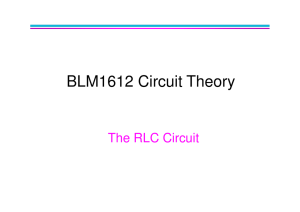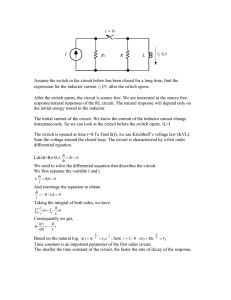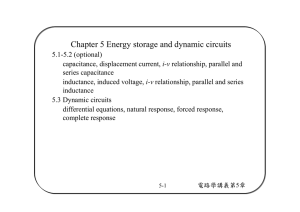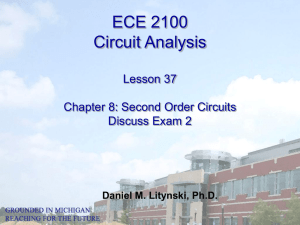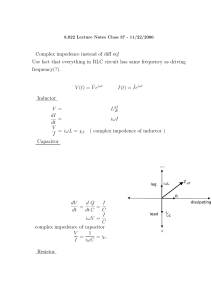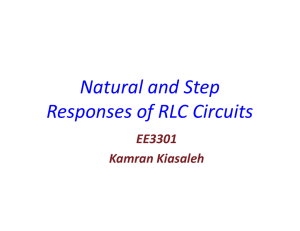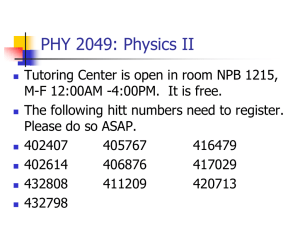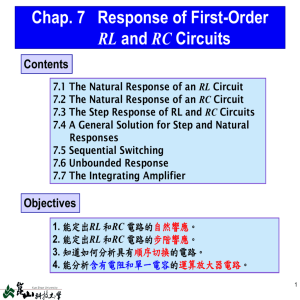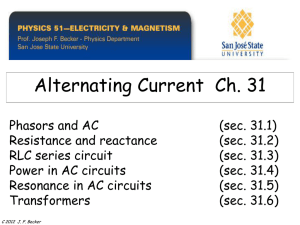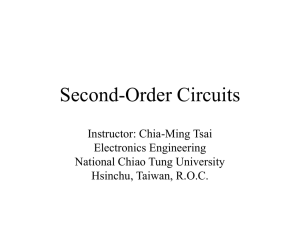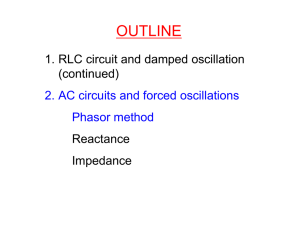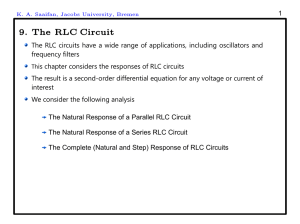State Space Trajectories
advertisement
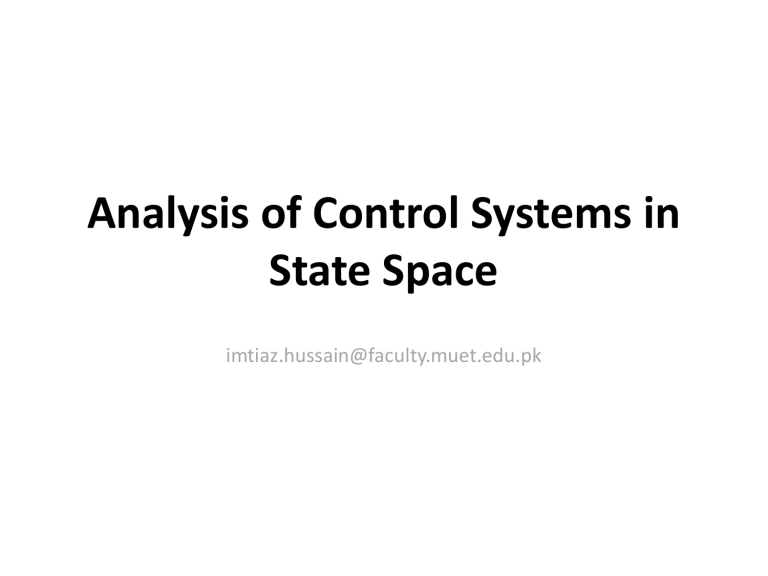
Analysis of Control Systems in State Space imtiaz.hussain@faculty.muet.edu.pk Introduction to State Space • The state space is defined as the n-dimensional space in which the components of the state vector represents its coordinate axes. • In case of 2nd order system state space is 2-dimensional space with x1 and x2 as its coordinates (Fig-1). x1 a11 a12 x1 b1 u(t) x a 2 21 a22 x2 b2 x2 x1 Fig-1: Two Dimensional State space State Transition • Any point P in state space represents the state of the system at a specific time t. x2 P(x1, x2) x1 • State transitions provide complete picture of the system x2 t0 t6 t1 t2 t3 t5 t4 x1 Forced and Unforced Response • Forced Response, with u(t) as forcing function x1 a11 a12 x1 b1 u(t ) x a 2 21 a22 x2 b2 • Unforced Response (response due to initial conditions) x1 a11 a12 x1( 0) x a 2 21 a22 x2 ( 0) Solution of State Equations & State Transition Matrix • Consider the state space model x(t ) Ax(t ) Bu (t ) • Solution of this state equation is given as t x(t ) (t ) ( 0) (t )Bu ( )d 0 • Where (t ) is state transition matrix. (t ) [( SI A) ] e 1 1 At Example-1 • Consider RLC Circuit iL Vc + + Vo - dvc C u ( t ) iL dt - diL L Ri L vc dt Vo Ri L • Choosing vc and iL as state variables dvc 1 1 iL u(t ) dt C C diL 1 R vc iL dt L L Example-1 (cont...) vc 0 i 1 L L 1 v 1 c C C u(t ) R iL 0 L R 3, L 1 and C 0.5 vc 0 i 1 L 2 vc 2 u(t ) 3 iL 0 Example-1 (cont...) vc 0 i 1 L 2 vc 2 u(t ) 3 iL 0 • State transition matrix can be obtained as S (t ) 1[( SI A)1 ] 1 0 0 0 2 S 1 3 • Which is further simplified as 2 S 3 1 ( S 1)( S 2 ) ( S 1 )( S 2 ) (t ) 1 S ( S 1)( S 2) ( S 1)( S 2) 1 Example-1 (cont...) 2 S 3 1 ( S 1)( S 2 ) ) 2 S )( 1 S ( (t ) S 1 ( S 1)( S 2) ( S 1)( S 2) • Taking the inverse Laplace transform of each element ( 2e e ) ( 2e 2e ) ( t ) t 2 t t 2t ( e e ) ( e 2e ) t 2t t 2t State Space Trajectories • The unforced response of a system released from any initial point x(to) traces a curve or trajectory in state space, with time t as an implicit function along the trajectory. • Unforced system’s response depend upon initial conditions. x(t ) Ax(t ) • Response due to initial conditions can be obtained as x(t ) (t )x(0) Example-2 • For the RLC circuit of example-1 draw the state space trajectory with following initial conditions. • Solution vc (0) 1 i L ( 0 ) 2 x(t ) (t )x(0) t 2t t 2t t 2t v 1 c ( 2e e ) ( 2e 2e ) 3e 3e t i t 2 t t 2t 2t L (e e ) ( e 2e ) 2 e 3e Example-2 (cont...) • Following trajectory is obtained State Space Trajectory of RLC Circuit 2 1.5 t-------->inf iL 1 0.5 0 -0.5 -1 -1 -0.5 0 0.5 Vc 1 1.5 2 Example-2 (cont...) State Space Trajectories of RLC Circuit 2 1.5 0 1 1 iL 0.5 1 0 1 0 0 -0.5 0 1 -1 -1.5 -2 -2 -1.5 -1 -0.5 0 Vc 0.5 1 1.5 2 Equilibrium Point • The equilibrium or stationary state of the system is when x(t ) 0 State Space Trajectories of RLC Circuit 2 1.5 1 iL 0.5 0 -0.5 -1 -1.5 -2 -2 -1.5 -1 -0.5 0 Vc 0.5 1 1.5 2
